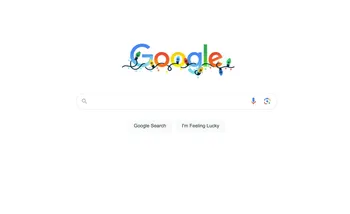I know that you’re concerned about how Google evaluates your website since you’re going to increase your visibility in the SERP. However, most of the webmasters mislead themselves concerning the fact how search engines work in practice. One may object that everything is clear regarding this topic. However, I claim that the searching algorithm is not so evident as it may seem.
Well, if everything is so evident, why in such a case you can’t find yourself in the Google TOP 10 SERP despite the fact that you follow the webmaster guidelines? Isn’t it suspicious that when you apply all the Google recommendations in practice, you don’t see any visible result afterward?
All these unfortunate events happen to your project not because of your incompetence, but due to the insufficient knowledge of how Google and other search engines work in fact.
To define the difference between the theory and practice, let’s first take a look at the fundamental principles of ranking.
How Google itself describes the process of work:
- Crawling & Indexing
- Search Algorithms
- Analyzing your words
- Matching your search
- Ranking useful pages
- Considering context
- Returning the best results
- Useful responses
Everything looks natural and entirely unambiguous. However, don’t hurry up with conclusions.
Let me present my vision on how Google and other search engines genuinely perform all these processes. It looks like that this process is more sophisticated in fact.
To define the difference, I’d like to showcase you an example with a new website since it’s much easier to grasp those steps which each search engine does to evaluate your site:
- Google discovers your domain right after you registered it
- The search engine waits before you add some content
- You are in the so-called sandbox now
- Google makes its second visit to check your sitemaps
- The GoogleBot analyzes your website to define what is it about
- You still remain in the sandbox
- Google waits for a while to determine if your site was made for people
- In the case, if Google wasn’t able to detect any suspicious content on your site, the search engine allows your pages to appear in the search results
- Your website gets in the TOP 100 by some low-competitive keywords
- You are still in the sandbox
- Google provides you the so-called newbie bonus that allows your project to appear in the TOP 10-15 SERP if the search engine is sure that you are regularly updating the content and don’t violate any rules
- Your website now is in the TOP 10 by one or more low-competition keywords
- Since you have no backlinks, Google starts evaluating the behavior factors
- If everything is okay with the bounce rate, session duration, time on the site, social signals, etc., the search engine allows you to climb onto the 1st place to check your durability
- Now, it’s time for the Google magic since the search engine starts comparing your web project with other websites
- To do that, Google applies a series of filters to your site
- If you were lucky to pass the examination, Google starts ranking your website
- All the pages of your project start moving towards the TOP 10 results by the low-competition keywords
- Google now applies a new bunch of filters to determine whether your SEO technique is white-hat or black-hat
- Let’s imagine that Google wasn’t able to define any suspicious methods in your approach
- The search engine allows your website to appear in the SERP by the medium-competition keywords
- Your site starts receiving noticeable organic traffic
- You are happy for a while (this period could last for a year or even more)
- Your newbie bonus is exhausted
- Google introduces you to Google Panda, Penguin, Fred, etc.
- Depending on your luck, your website obtains or lose the organic traffic
- Let’s imagine that you managed to survive another Google algorithm update
- In such a case, your site starts receiving natural backlinks given the that you are now gathering the organic traffic thanks to numerous long-tail and mid-competition search queries, and are in the TOP 10 SERP
- Thanks to the backlinks, your website gets a chance to compete with other sites by high-competition keywords
- If you were lucky, you start receiving a lot of organic traffic
- As a result, your DA/PA increases
- Now you stand in the one row with the rest reliable websites on the Internet
I’m sorry since it was a huge list. However, I have showcased to you the best scenario. Unfortunately, in practice, your situation might be more complicated.
But you might ask the reasonable question, why my website is not in the TOP 10? It’s time to look up how your project evolves at each stage. To simplify the process of explanation, I’d like to follow the Google’s list which describes the process officially.
How can a webmaster affect the process of crawling & indexing?
Google claims that there are thousands, even millions, of pages which are relevant to a particular search query.
According to Google, the GoogleBot “pays special attention to new sites, changes to existing sites and dead links.”
Next, Google tells you that the search engine follows your instructions while crawling your website. Wow! Looks like this is too simple!
So, how can you affect crawling of your web project?
- Google allows you to restrict indexing some pages thanks to robots.txt
- Force the search engine to index your pages thanks to the Fetch as Google tool
- Showcase the order of crawling (They probably mean the XML sitemaps) to the GoogleBot
Humph! It looks like that it’s all you can to do.
Summing up, you have no chance to affect the process of crawling and indexing.
However, you might try the following things to turn this painful process in favor of your efforts:
- Don’t publish any content on your website right after you installed WordPress or other CMS. You need to prepare at least 15-50 articles for the Google’s first visit
- You don’t need to add your XML sitemap to the Search Console before you make sure that everything is okay with your website structure
- Don’t create the thin content. Instead, I’d recommend writing at least 700-1000 words for each article on your blog
- Update your site regularly even on weekends to allow GoogleBot thinking that it always miss the new content
- Don’t use the Fetch as Google tool. Instead, you need to allow the search engine to make indexing your website naturally (this tool is only useful when you update your content and need it to appear in the search results instantly)
How does it really work?
After, Google is going to explain to you how exactly do algorithms work. However, it seems that they don’t care about us, webmasters since the description is more suitable for a visitor, not a site owner.
Google team tediously explains how they analyze keywords and synonyms. But there are no data useful for a webmaster.
Next, Google team explains that to define how your page matches a keyword GoogleBot analyzes “how often and where those keywords appear on a page.” Wow, what a great idea! Ask yourself, does it work in 2018? Will it work later? I doubt. You know why? The answer is — Because this approach doesn’t work in the new era of Google.
I bet each of you seen in the Google SERP some pages which don’t even contain any keyword. Sometimes, such a page has no keyword even in the title. How could this happen? Google deceives you since this factor doesn’t work anymore.
In fact, the only thing Google indeed cares about is the reputation of your website.
Why doesn’t it work for me?
If you exist in the fabulous universe of Google, all you should do is to create quality content. Unfortunately, in reality, it doesn’t work. I hate Google and other search engines because of such injustice. But despite the fact that Google claims that it demand quality content, its primary target is your backlinks.
If you read my other articles, you might object that I also asserted that you must take care of your content first. However, all the recent algorithm updates have allowed me to think that Google returned to the basics. Yeah, I’m talking about the Pagerank. It doesn’t matter, whether or not your page is relevant to a particular keyword. If you don’t possess enough authority of your domain and page, you have no chance to compete with the business sharks in the Google SERP.
The reason is that Google is apparently going to reduce the number of websites in the database since its too complicated to evaluate such an amount of pages. Therefore, the company is rolling out more and more algorithm updates.
All that you knew about SEO previously doesn’t work in 2018. The only thing which remained is the Pagerank.
Domain & Page Authority
I want you to grasp that when I’m talking about the Pagerank, I don’t want to use this term anymore since it is out-of-date. Today, we apply all the features previously related to the Pagerank to the new terms such as:
- Domain Authority (DA)
- Page Authority (PA)
You can’t exist in the modern world having any idea about these terms.
The only thing that must be clear to you is that even if a page has almost no data related to a particular keyword, but it possesses enough authority (from the Google’s point of view), the search engine will rank it higher, unlike the one which fully covers the topic but has no authority.
That’s why you frequently see the pages in the SERP that don’t fit the query.
A reasonable question is why such injustice exists in the search results?
There is no simple answer to this question. The only thing I can say right now is that these people who stand behind Google try to be safe. They want thereby to be sure that a visitor is protected against wrong data. I know that it sounds a bit weird, but they still have not invented something new regarding this issue.
Google team made numerous attempts to facilitate new websites to appear in the one row with the business sharks. However, eventually, they were deciding to abandon these dangerous experiments. Instead, every day, Google provides a priority to the old reputable websites.
But what if you’re a conscientious webmaster? What do you need to do to survive among the business sharks?
Realize how the search engines actually work
Your goal is not to mislead yourself with cliches and stereotypes. It’s almost unreal to compete with the experienced competitors if you’ve just registered your domain.
Now it’s time to get acquainted with the list of facts about Google and other search engines to grasp how they work in practice.
- There are millions of websites and billions of pages
- Search engines involve colossal resources to crawl and index all the data on the Internet
- Google database contains enough reputable sites to meet the demand for each search query
- Every day Google and other search engines develop new, and new algorithms made for only one goal — to reduce the number of websites
- During each algorithm update, small sites lose the visitors while the old and reputable ones acquire your lost audience
- Google doesn’t feel a lack in the new websites; as a result, only the best of them have a chance to remain in the SERP
- As a rule, a visitor attends only 10-20 pages; why to spend resources to evaluate all the rest; as a result, most pages exist in the so-called omitted results
- Almost all the pages on the Internet exist in the supplemental index; if you don’t believe in such a statement, try to browse at least 500 or 1000 pages in the Google SERP
I know, this is not what you expected from this article. But the truth sounds not so pleasant like one might imagine. Don’t mislead yourself by reading useless articles which give you nothing about how search engines work. You won’t find the answer since it doesn’t exist. As for the basics, I gave you the answer at the beginning of my blog post. But there are too many details in such a topic.
How can I use all these data
As you may have noticed, the title of this article contains two subjects:
- How Do Search Engines Work In Practice
- What A Webmaster Should Know (or rather should do to survive)
In fact, there is the only way to survive in the new era of Google. Your website must fit the standards Google applied to business sharks. In other words, your primary goal is to make your project similar to those that are in the ALEXA TOP 10,000.
I know how it sounds. Perhaps you think that this target is unreachable. Unfortunately, there is no other way. In fact, I have already described the process which we call the “white-hat SEO.” However, it’s difficult to play the game according to these rules since it takes a lot of time. But all the rest methods are ineffective or have a temporary effect.
So, in a nutshell, our target is to acquire the DA/PA above 50/100 (approximately). Of course, it would be better if your website has this indicator equal to 70-80/100. But it takes a lot of time, about 5-7-10 years, depending on your niche.
So, now you know how most search engine work. It’s time to explain to you what to do.
There are many ways to increase the authority of your domain and pages to be more remarkable for a search engine. But since we are talking about the standards for great web projects, you will have to fit the following rules:
- The design of your website must be perfect (ideal, excellent, astonishing; chose your word)
- Your project must be mobile-friendly, especially starting from 2018
- The server setup should be made without flaws
- Your site’s speed must be in the green area (A+, A, B+++, B++, B+, B)
- You must avoid any link building strategies aside from the natural growth of your backlink profile
- You will have to update your project regularly (it’s better to publish at least five new articles per day if it’s possible in your niche)
- Don’t forget to rewrite your blog posts on a regular basis to avoid they to be out-of-date
- You need to clean out your backlink profile to get rid of useless backlinks (your final goal is to showcase only quality backlinks to the GoogleBot)
- Forget about the thin content
- Instead, your content must be written by experts and be viral as well
Conclusion
Now you know how Google and other search engines evaluate your website. Unlike other authors who explain you the elementary truths, I’ve been trying to reveal the naked truth about the processes of indexing and ranking. Finally, I want to tell you that no one knows for sure how Google or any other search engine is working right now. Google updates its algorithm numerous times a week. It becomes more and more complicated to follow the rules. But if you managed to learn the basics thanks to this article, I’ve reached my goal. But if you want to learn the details, I invite you on a journey into the world of SEO. My blog is all about this matter. Good luck in your online business.



